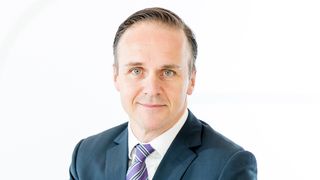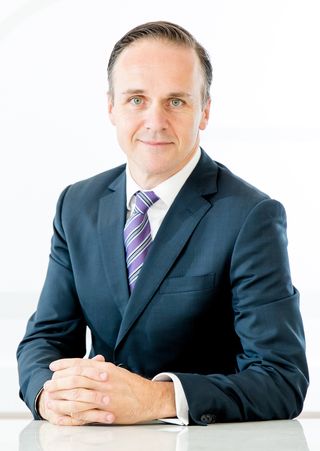"Magnanimous" is a lovely word, its Latin origins fairly bursting off the page. Great (magnus) spirited (animus). As the first part of the word hints, it is an adjective often applied to political leaders. Indeed, one definition is "generous in forgiving an insult or injury; free from petty resentfulness or vindictiveness".
Donald Trump's first 24 hours as President of the United States has seen little of the magnanimity we have come to associate with incoming presidents. To be sure, he graciously acknowledged Hillary Clinton's presence at his post-inaugural luncheon in Statuary Hall. Trump acquitted himself well through the farewell formalities with Barack Obama and Joe Biden and their spouses.
Moreover, Trump's inaugural speech wasn't as terrible as some have made out. Inaugural speeches are seldom the places for policy specifics. Incoming presidents usually paint broad brush strokes, a statement of a guiding philosophy to government and policy priorities. Trump's speech had all of that: giving power back to the people, away from the Washington establishment, ending crime and lawlessness (ending "the carnage"), rebuilding American infrastructure, wiping "radical, Islamic terrorism" from "the face of the earth", and putting "America First, America First". But conspicuously absent was the call for national unity after an exhausting, bruising election campaign and the long American interregnum, a standard theme of inaugurals.
Saturday, Trump's full first day in office, saw Trump head out to the CIA for a hastily organised speech. Trump stood on a stage in front of the famous wall in the agency's Langley headquarters, with stars in the marble facade honouring more than 100 members of America's clandestine services who have lost their lives in the course of their duties. This speech was widely seen as an attempt to heal the rift created by Trump's accusation that America's intelligence agencies had behaved like Nazis with regards to reports about Trump's ties to Russia. Yet Trump's remarks at Langley – carried live on TV – made no mention of the wall behind him, of the lives and sacrifices commemorated by those stars.
Further, Trump drew attention back to a running spat between the media and the new administration about the crowd size at his inauguration. The media – Trump declared to the assembled CIA employees – are among the most deceitful people on the planet. Trump went on to quip that he knew that most of the CIA employees in the audience voted for him (they had voluntarily come back into work on a Saturday for Trump's visit), but that he wouldn't be asking for a show of hands (a good thing, since that's probably illegal).
All of this was vintage, unscripted, illeist Trump, reminiscent of the free-flowing, self-aggrandising style we saw during the campaign and long before, over Trump's long turn in the public spotlight. Earlier in the day it also emerged that the new administration had issued restrictions on the use of social media by employees of the Interior Department in which sits the Parks Service, an employee of which had retweeted a photo from The New York Times purporting to show disparities between crowds on the National Mall at Obama's and Trump's inaugurations. Petty and vindictive, the opposite of magnanimous.
If a more "presidential", more magnanimous Trump is in the offing, it didn't appear on day one.
Dwarfing all this were the huge "Women's Marches" across the United States. The crowd in Washington almost surely surpassed the crowd on the Mall for Trump's inauguration, although the weather was much better on the Saturday. TV carried pictures of large crowds in thoroughly Democratic Boston and Los Angeles, no doubt annoying the ratings-conscious President. The size of these crowds, their rallying themes and their timing are a potent reminder that Trump comes to office as perhaps the most unpopular incoming President in the modern era.
Yet Trump's outsized and seemingly fragile ego – the ongoing fight with "the media" and his apparent lack of conventional, presidential magnanimity – is a sideshow. It threatens to overwhelm serious analysis of policy and the huge challenges confronting the US, its allies and the world.
For Trump is already setting about reshaping the government of the US. Executive orders have already been issued scaling back part of federal mortgage assistance program and beginning the complicated task of dismantling Obamacare. At a conference this weekend in the US I was reminded that one-sixth of the federal bench is currently vacant, with the big prize being a Supreme Court nomination – the Republican Senate refused to consider any Obama nominee to replace the late Justice Antonin Scalia.
Right-of-centre think tanks in the US have long lists of potential nominees ready for Trump and the Republican Congress. Trump will thus leave an imprint on the US not just through the policies he makes as president, but for decades, via this almost unparalleled opportunity to shape the federal judiciary.






